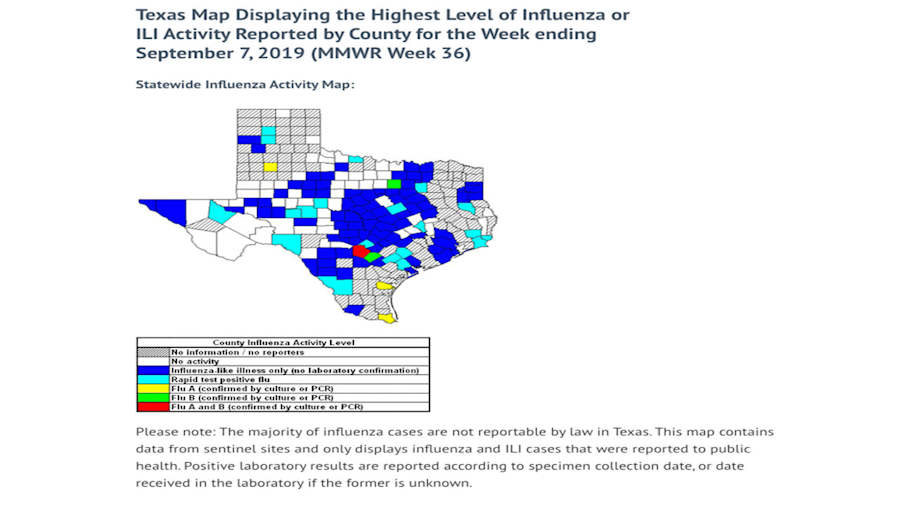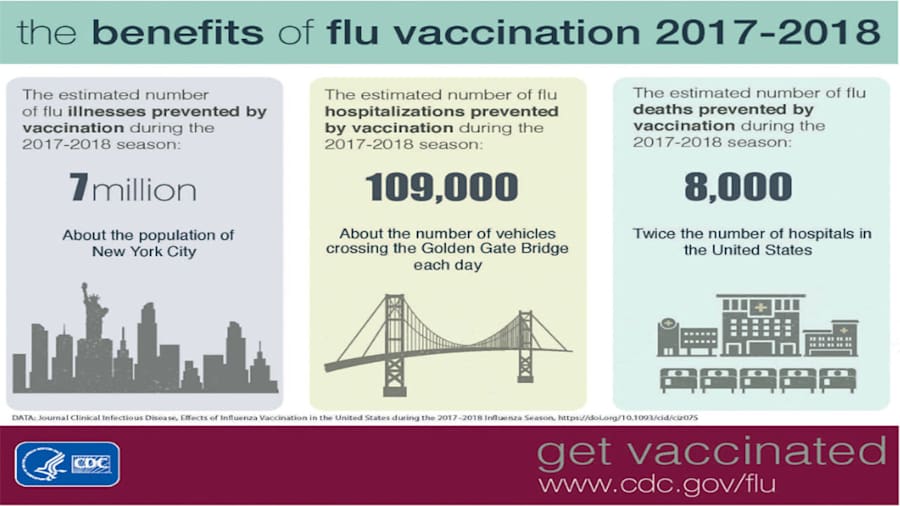SAN ANTONIO – It isn't technically flu season yet, but health officials are urging people to get their flu shots.
RELATED: Tips to stay healthy during flu season.
"Every season is hard to predict, but it's always best to protect yourself and get your flu shot," Texas Department of State Health Service spokesperson Chris Van Deusen said.
Flu shots are already available in most clinics.
What you need to know
When is flu season?
According to the Centers for Disease Control and Prevention, flu season in the United States is common during the fall and winter months. Activity usually begins in October and November, and peaks between December and February. Out of the 254 counties in Texas, Bexar County is the only county to have confirmed cases of both Flu A and Flu B as of Sept. 7, according to the Texas Department of State Health Services. According to the San Antonio Metropolitan Health District, there are no active cases right now.

What are the common flu symptoms?
Common symptoms are fever, chills, cough, sore throat, runny or stuff nose, muscle or body aches, headaches, fatigue and some people may experience vomiting and diarrhea.
What can we expect for this year's flu season? How does it compare to last season?
Every flu season is different. According to Metro Health, the most effective way to make this season "better" than last, is to get your flu vaccine early. Prevention is protection. If our community gets immunized against the flu, we can help reduce the amount of cases we see this year.
What strain is the biggest concern this season?
According to the CDC, for 2019-2020, trivalent (three-component) vaccines are recommended to contain:
- A/Brisbane/02/2018 (H1N1)pdm09-like virus (updated)
- A/Kansas/14/2017 (H3N2)-like virus (updated)
- B/Colorado/06/2017-like (Victoria lineage) virus
Quadrivalent (four-component) vaccines, which protect against a second lineage of B viruses, are recommended to contain:
- The three recommended viruses above, plus B/Phuket/3073/2013-like (Yamagata lineage) virus.
How do you determine which flu shot will help protect against strains?
The composition of U.S. flu vaccines is reviewed annually and updated as needed to match circulating flu viruses. Flu vaccines protect against the three or four viruses (depending on the vaccine) that research suggests will be most common.
Why do some people get sick when they get a flu shot?
If you feel sick after receiving any vaccine, it is because your body is reacting to the vaccine and it is working hard to build immunity to that disease or illness. In some cases, people who get the flu right after receiving the vaccine had already been infected with the flu prior to getting the vaccine, but didn't show symptoms yet.
When should you get a flu shot?
Metro Health recommends that everyone get the flu vaccine as soon as possible because early vaccination helps prevent the flu from spreading in our community. It takes about 2 weeks for the shot to start to work and protect you.

Metro Health recommends a three step approach to protect yourself and others from the flu:
1. Get a flu vaccine
2. Wash hands often and maintain good hygiene to prevent the spread of germs, including covering your cough and sneeze with a tissue, your arm or sleeve.
3. If you get the flu, complete all medication doses prescribed by your doctor and stay home.
SAQ: What questions do you have about the flu vaccine or about how to prevent, diagnose or treat the flu?
Ask your question in the prompt below.



